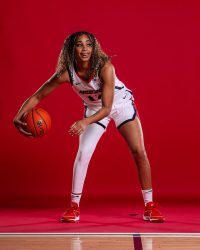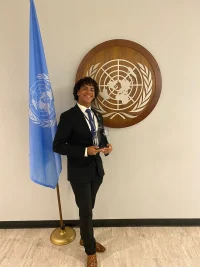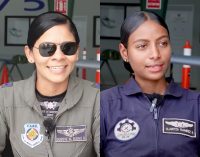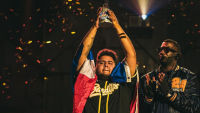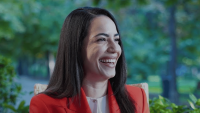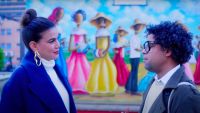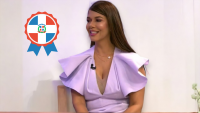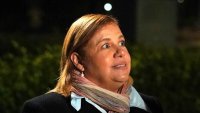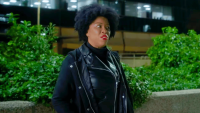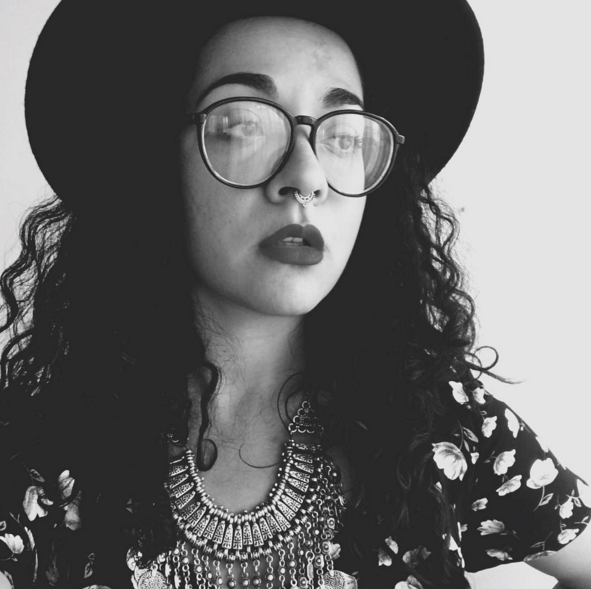
Paloma is a writer and director with an unique style.
New York.– Check out the interview Michael “Juan Bago” Díaz did for remolacha.net to Paloma Valenzuela, a dominican filled with lotsa style and talent. She is the writer, director and creator of the web series “The Pineapple Diaries” :
R: This is a Remolacha interview and we are with…?
PV: Paloma Valenzuela
R: And you are from…?
PV: Boston, Massachusetts
R: Very quickly, tell me how a dominican ends up in Boston?
PV: Any dominican?
R: Well just in general.
PV: I think that Boston has a very large dominican community, neighborhoods, owned businesses. I think that through the years dominicans like to feel at home and feel like they’re with their people.
I think that boston has a strong dominican community and that why people continue to go there. I think also when families move from the DR to the states they wanna go to where their family is, at least to start out, and there’s certainly family members in Boston, it has a huge ‘Banilejo’ community.
R: So your parents came from DR to Boston?
PV: Yes, I wanna say they came in 1986
R: You mentioned to me pryor that you are half jewish, half Dominican?
PV: Yes
R: Tell me, how your parents met? Tell me how that happened?
PV: My parents. My mother is jewish american, french hungarian descent and my father is from Las Matas de Farfán, which is in the south, my mom was going to college in University of Wisconsin in Madison, my dad was studying agriculture in La Vega and he received a student visa to study agriculture at the same university, for a month, he came to Wisconsin with a group of other dominican students, he met my mom when she was a waitress at a chinese restaurant and the group of dominicans that were studying enjoyed the restaurant because they served big plates of white rice and it felt like the closest thing to home.
He saw my mom and felt intrigued and asked for her number, and she said “you can look it up in the phone book” sorta not as rejection but sorta like challenging him on, and he did end up finding her number in the phonebook and he called her up and they went on a date and they fell in love and then he had to go back to the Dominican Republic and they exchanged letters to each other and she decided she would go to Santo Domingo for a visit. She went to go visit him and she decided to stay for 2 years, they got married and they had my brother, then they moved to Boston and they had me.
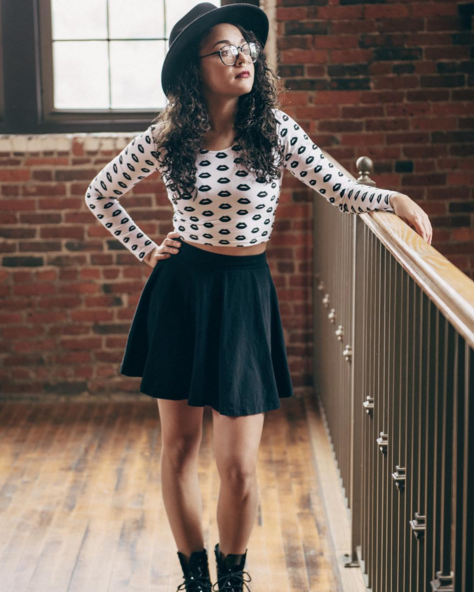
Paloma Valenzuela/ Photo via IRU Mag
R: Have you ever thought that knowing that story that you would write something about that ? Dedicating to your parents? Because it sounds like a love story…
PV: I have and I did made a little documentary about their story, but i made it for their 30th wedding anniversary, and after i did it i said to myself this really is a good story, well now that you put the idea in my head i think i might go for it.
R: Let’s start from young. When was one of the first times that you felt the love for filmmaking or just films and entertainment?
PV: Where do I start. I guess I’ll just start with highschool. I went to an arts high school in Boston called Boston Arts Academy and I studied acting, originally I wanted to be an actress ,but the school offered other programs, they had playwriting courses and they had video production classes, it was very small little classes but for some reason I fell in love with the whole concept of telling a story -that way- not necessarily on stage but on a screen and I don’t know, I threw playwriting, I realized that I really enjoyed writing.
I still love acting but I just decided I wanted to focus on writing, it brought me so much joy and I wanted to come by on both so I decided to study screenwriting in college. I think that’s where it came from, I always loved the movies, I’ve loved entertainment since I was a little girl, and the writing just sorta fell on my lap I guess.
R: What was or what is your favorite genre when it comes to films?
PV: Oh my god I like them all. I could say what I don’t like.
R: Okay, what don’t you like?
PV: It’s not that I don’t like, It’s just that I probably don’t go and watch these movies. I’m not into horror movies too much. If you invite me to go see an action movie I’ll go see it but it’s not necessarily what I’ll click on when I’m searching through netflix for an hour to look for something to watch.
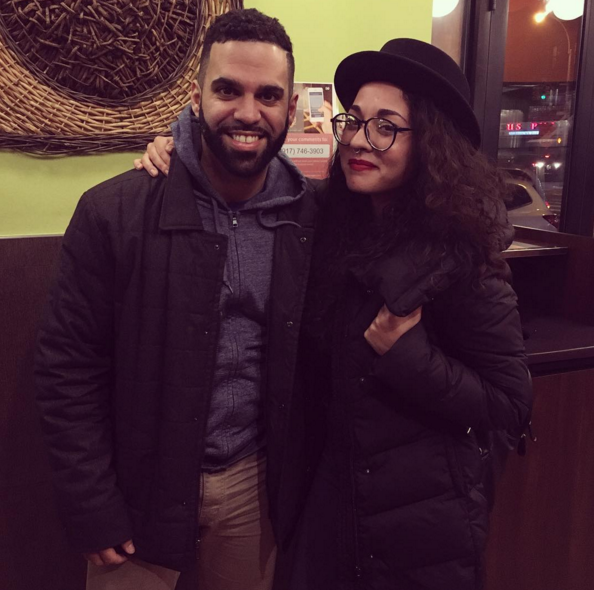
Michael «Juan Bago» Diaz with Paloma
I really like small sorta slow movies, charactered profile movies, I love those, Indie sorta movies, telling really true raw little stories I love that. And I love comedies i like every genre, I like this stupid big blockbuster to like the smarter ones, dark comedies, I love comedy.
R: You went to school in Boston and then afterwards you ended up going to Dominican Republic. Where was that point where you said “I’m gonna go to Dominican Republic” Why didn’t you decide to go to New York? Why didn’t you go to L.A.? Why didn’t you stay in Boston? What made you say “I’m gonna go to Dominican Republic and work on the passion I have” ?
PV: I feel like I’ve always felt a connection with being dominican, I feel like I’ve gone through a journey in my life as a biracial woman, not being bilingual growing up, I feel like I’ve always had a desire to learn more about this connection that I felt with my dominican heritage, I really wanted to learn the language and so up to up until basically 19 or 20 I didn’t speak really any spanish at all, you wouldn’t catch me saying a quick little street thing I didn’t much of anything, I couldn’t sit and watch a ‘novela’ and understand it, It was something I really really wanted and it felt like it was just something I was gonna have to do.
So I did my thing in college trying to learn a little bit, it felt like it was my chance, If I was gonna do it let me do it now, my last semester in college was in los angeles, a lot of the student there were graduating with me and they were like “Imma just stay, cuz I’m here in LA and imma do my thing”.
And for some reason I just said to myself, LA is always gonna be there and I know that these are the moments you’re supposed to decide the journey that you’re gonna take for your career at that moment it felt like if I was gonna be an artist I was gonna discover in order to be a better artist or tell different stories, I just felt like I didn’t wanted to go straight to LA and get coffee for some production executive. I wanted to learn about myself a little bit more.
R: You felt that if you went to Dominican Republic you’d be able to have more hands on?
PV: Absolutely it was like 2009 and in that point the industry was really beginning then.
So basically I felt like I wanted to go to DR, I wanted to connect with the island with the culture, I wanted to discover more about myself, I wanted to learn the language and also there was a small buzzing industry at the time and I said to myself, and I still want to make my dominican movie, domincan made, dominican production movie and that was my goal even then.
So I moved to DR and i got a job as a second assistant director for like this television sitcom there and it was very first long term experience on production set and in DR I felt like everyone was going through a learning experience and it was a wonderful place to start, it was very hands on, and it wasn’t anything easy whatsoever.
R: What was the name of the show?
PV: It was called Juanita’s Gran Salon y Spa, I’m not sure what channel it was on, it lasted for one season I suppose.
R: Who were you working with?
PV: I was actually working with Angel Muniz whos still a good friend of mines, a dear friend of mines and I respect him so much and I felt very grateful that he gave me that experience and that we still have a relationship where he gives me artistic support and he’s very supportive of young artist. Anyways, Angel is cool.
R: So you worked on that, and you were working on different projects?
PV: Well after that, a sorta like in your 20’s life thing that happens is you realize you need a little bit of stability, after that show was over, it was like a 5 month long gig, which is awesome for people who do that, but I also felt like when it was over I felt like I needed a quick day job, so I got a job at a school, english reading help, to pay the bills sorta thing, at that time I wrote and directed a mediometraje like a 60 minutes film, and then I moved to NY and then I moved back to DR, and I’ve been sorta managing, having a full time job and doing my artistic endeavours at the same time
R: How do you find a way to balance on having a fulltime job and then also being involved in the artist side? How do you mentally keep yourself balanced with that?
PV: Well in my case, after moving to NY and then moving back to DR, I moved back to Dr because I got a job offer a a theater teacher at a school which I was very much interested in doing and i wanted to go back to DR as well, i worked there for 3 years and the first year I wrote 2 plays one of the plays was produced in Boston and I produced the second play myself in Santo Domingo in a theatre called teatro Guloya it was called ‘Queseyocuanto’.
That first year I was doing screenwriting, workshops in Cinemateca, I was like ‘killing it’ with the 24/7 no sleeping. It just felt like it was really hard to manage because my other job was very important to me, you’re working with kids, you can’t do that job just for the money and if you are you’re not doing what you’re supposed to do… And so I had the job because it was interesting to me but it was difficult because I was very attached I worked really hard I wanted to make sure I was the best teacher I could be, and in order to do that I felt like i had to let go of the other things I wanted to do, that’s why after 3 years I decided I was going to try freelancing and give it a shot and I think that there’s definitely a way for an artist to have a fulltime job and work on their artistic endeavours, I think it’s difficult, I think every artist manages their life differently.
For me right now, I feel like I’ve had a surge of energy because of the time I’ve been able to dedicate to what I love right now, but I know if I couldn’t maintain this and I needed to get a full time job I would do it and suck it up and try my best to not stop the artistic path i’m going on I think that most artist probably need to just do what they can to make it work.
R: Tell me some of the projects that you were working in Dominican Republic, here, that stretch of time when you were saying that you were freelancing and you were doing some of the creative work that you were doing?
PV: I’ve written a few plays that have been produced in Boston and in the Dominican Republic, when I was working as a teacher I did manage to produce a short documentary webseries called Onomatopeyas Dominicanas which was a comedic series told through interviews told through dominicans and non dominicans that life in DR about dominican language and gestures just what makes dominicans unique in terms of the way that we communicate with each other, that was a 4 part, well a 3 part series but the 4th part had 2 parts, confusing!
After that I worked freelance while I was a teacher and still do editing film scripts for dominican productions, in some cases I’ve been given scripts to reformat into proper screenwriting format, or doing rewrites, sometimes I’ve been given scripts and the producer or director just ask me to give them notes, so I’ve done that like a freelance gig, I’ve done script editing, I was a script editor for a film that has to produce this year and also been commissioned to write a script for a dominican film that is hopefully coming out soon, so that’s what I’ve been doing, not my projects but helping other people on their projects.
That’s what I’ve been doing and still do as a side freelance job, since moving back to the states from DR I started my comedic series The Pineapple Diaries…

R: Which is where you’re at right now…
PV: Yes, excactly, I’ve done a lot of other things, I did a commercial for Miss Rizos Salon as well..
R: Yes I saw an article in New York Times about it if I’m not mistaken… How did that come to be? Did she approach you? Did the story about her salon intrigue you?
PV: That’s a whole other thing, Carolina is a friend of mines she’s also a dominican bostonian we met in dr in 2010 this was before Miss Rizos, I met her though a friend, she decided to cut her hair and she wanted to document the experience and created a blog, so in 2010 she asked me to make like a little video based on a concept that I had done with a different video where I had people answering questions on a white board, and so I went throughout the city with my friend Ivan Aybar and we documented women with curly hair answering questions as what do people call them in the streets like the nasty names that people would call women with curly hair or naturally textured hair and why do you wear your hair curly as a way of motivating people to let their hair be if they so desire.
After creating those videos, she got a lot of attention and her blog just grew from there and though the years she decided to create her salon and she asked me to create the commercial for it. But she’s my buddy, that’s my girl.
R: So how did it come to your web series?
PV: In 2014 I knew I wanted to do something, but I wanted to do something where I didn’t have to wait for everybody else, sometimes you think to yourself oh I wanna make a movie, I wanna produce a movie” yes you can do it, but there’s so little that you can get away with in terms of movie, quality of production, you do need a lot of hands in the pod, you need people to help you with it. That felt like something I really wanted to do and I wanted to do it right but i was like “I don’t wanna wait a year and a half” I just wanted to do something I was itching to create something,
So I had the idea to create a TV show for women like me or women that reflected my group of friends and what we looked like, all the fifferedves between all my friends who might be all be latina but were all different and complex, I hadn’t seen that on TV, like where women were latinas but also were human beings we go thought human being stuff, so I wanted to create a show like that.
So I started writing it and then in 2015 I started talking to some of my old friends in Boston who are actors who are still in the career, and that was it, I did a small crowd funding campaign on Indiegogo and the dates matched up for everybody, and we took that month of may in 2015, we produced it and we launched in August.
By the way the name of the web series is The Pineapple Diaries. I’ve translated to “Los Diarios de la Piña” but I don’t think it needs a translation people get it.
![]()
(Click here to give support to the web series…)
R: Where did you get the name to tittle that?
PV: I remember I thought of the name before I even finished writing all the scripts, something about pineapples drew me because, I pictured a show with latinas, with a variety of hairstyles,all of my gf a lot of my girlfriends all have curly hair we have different texture hair, what we have in common is when we go to sleep, we put our hair in a pineapple which is to put your hair in a pony tail so it tip tops of your forehead so that the curls cascade cuz when you’re sleeping curls flatten.
I thought pineapple it sounds tropical, I knew I wanted to do the show in boston, I’m also a very proud bostonian, but I wanted it wanted it to feel tropical and I feel like there’s a piece of Boston which i Jamaica Plane the neighborhood that I’m from, that feels so tropical, so I felt like The Pineapple Diaries nailed it for me, the hair, the women, the identity in terms of our hair, and that pineapple tropical fruit.
R: Your ultimate goal with that is to keep doing web series ’til it gets picked up? Or is that your passion project?
PV: It’s interesting. I feel like it’s my passion project, something I learned through the years is that if you don’t enjoy the process what’s the point? I feel like really enjoy doing it, and i know it sounds mediocre but to me that is the goal, that I enjoy the process that I’m learning from it, but of course I want people to enjoy it, I want people to watch it, I don’t want hard work to go to waste. But in terms of getting picked up or where is it going to go on the long run, whatever ‘camino’ it decides to take let it take that ‘camino’.
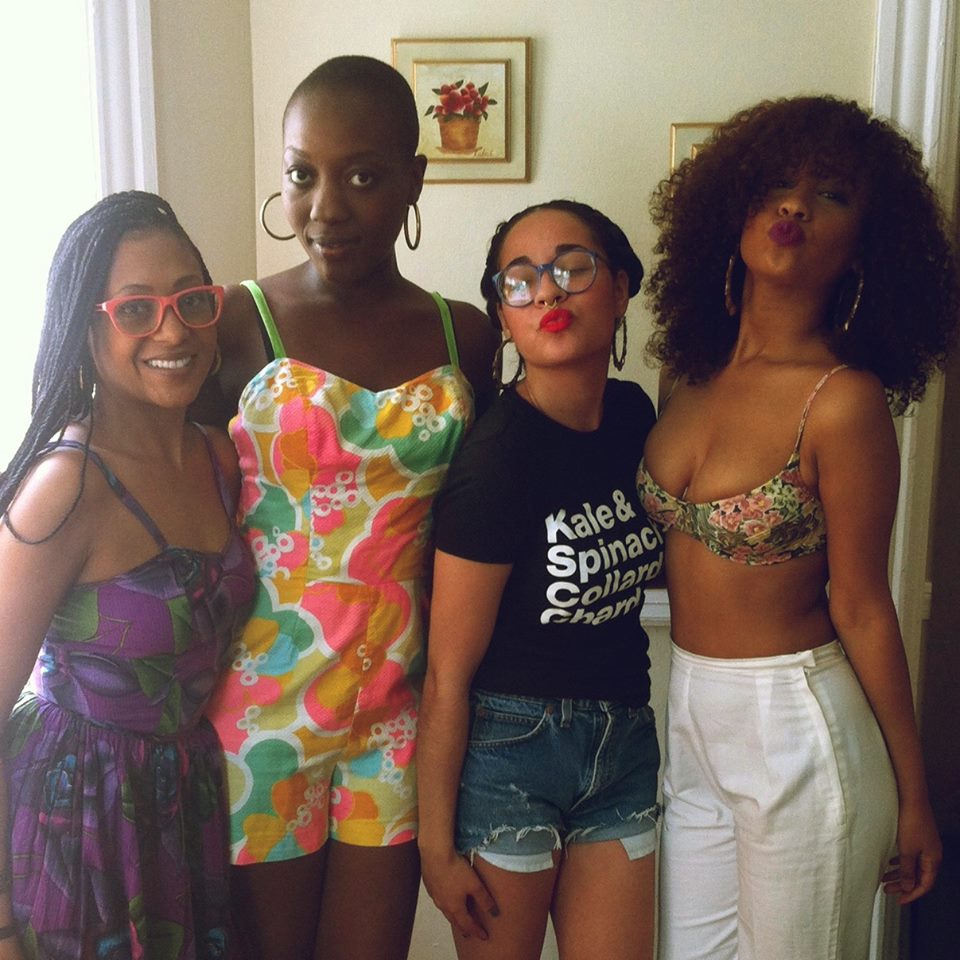
Cast of «The Pineapple Diaries»
R: Being half dominican half jewish, how has that cultivated your vision of life and how has it helped you in your sense of storytelling?
PV: What I’ve learned now at my 28 years of age, is that all latinos have a very specific experience as a latino, we’re extremely complex, we deal with immigration, issues or race within our culture, my specific journey as a latina has very much reflected on the work that I do as a biracial person, and not being able to speak spanish, I moved to DR to find myself as a dominican woman, and i realized what I didn’t before is that I’m a dominican-american, because all my experiences in the USa has molded me as the women that I am, there is no need for me to try to mold, there’s no need for me to try to be domincan I just am and I’m also american, and that’s why my production Operation La Gringa Loca, because they called me la gringa when I first came to DR, and I know they call me la gringa it’s because in all essence to them I am because I’m from the USA.
I remember feeling offended at first but I realized that on top of all the other layers, being biracial, being jewish being dominican, dominican-american, I feel like I found all the special elements of my latina experience, and i feel like i try to reflect that through my characters and my stories because if it’s true to me it has to be true to other people.
(Click here to give support to the web series…)
R: What are some of the challenges of being a female film director?
PV: Being heard. The most true story, I could tell you as being a woman director is that you have to work extra hard for people to hear you. There’s a difference when a man is telling the crew to be quiet, to do this, to do that, where as when a woman is doing it, you can’t but to feel that you’re a nagging mommy, that you’re not cool, as a woman you feel this need to “be cool” and be fun and be soft, but you wanna get things done, to me it’s complicated to navigate all that bullshit because at the end of the day you know what you’re doing and people need to listen to you, if you’re the director then, that’s your role and people need to listen to you, and it’s surprising and shocking to me how hard it is for female directors to be heard and it’s not the female directors fault, it’s just the way the industry is working right now.
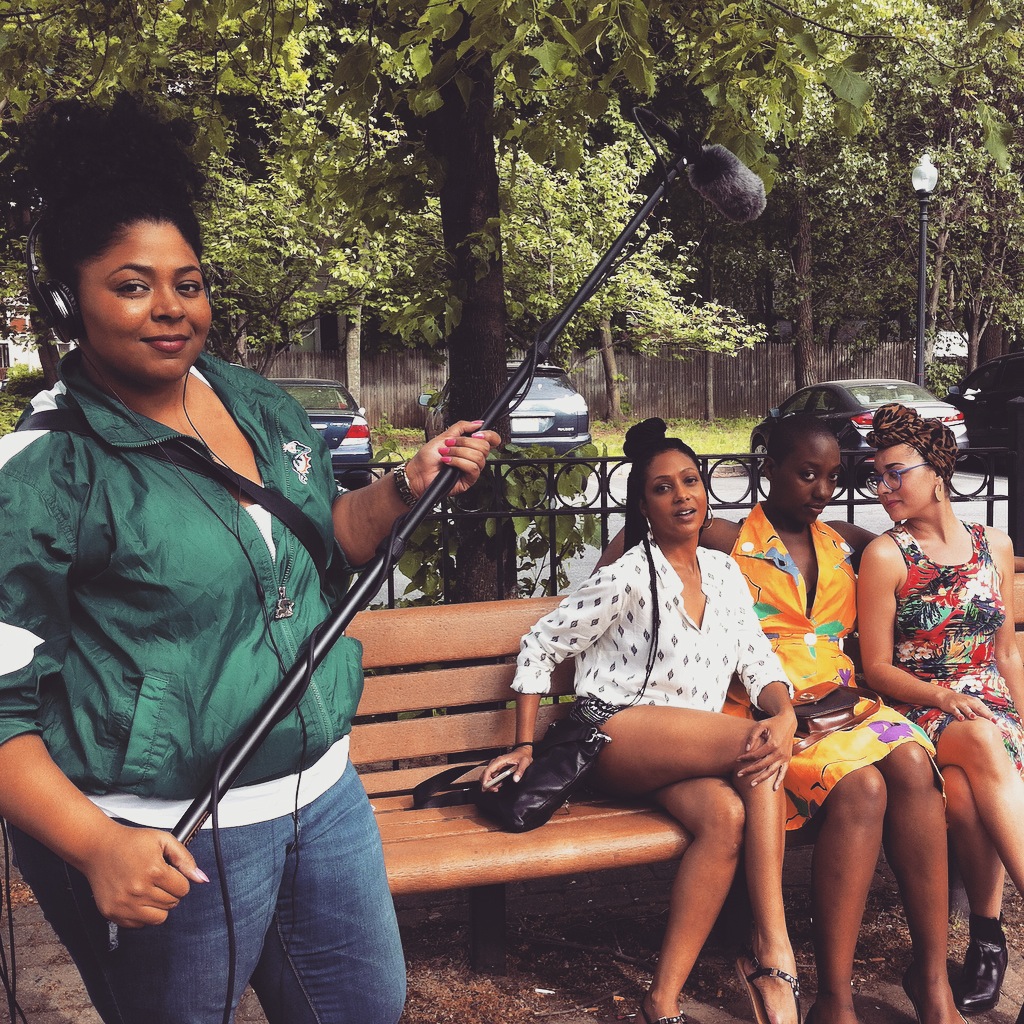
Behind the scenes “The Pineapple Diaries”
R: The future in dominican filmmaking and production in Dominican republic?
PV: I look forward to the future of dominican film industry, there’s so many rich stories to tell, dominicans in general is a very artistic culture, theater, music, dance, it was just inevitable that they were gonna tackle cinema, and I think that they’re gonna kick ass, and I’m proud of all the work the cineastas are doing in DR.
R: Who’s been the most influential person you’ve worked with?
PV: Everybody throughout my entire life who has inspired me, be it, my teachers in high school, or my writing professors in college, or the directors I’ve worked with in DR, my peers that inspire me, any incredible movie I’ve sat in and I left the theater saying oh my god I cannot wait to get home so I can write something. .
R: Give me 2-3 director that you have taken from and been inspired from.
PV: Pedro Almodovar, I think he’s incredible and he’s such an amazing writer, visually I just love him.
Spike Lee, he has such a clear voice, or West Anderson, nowadays you’ll find young filmmakers saying “I want that Wes Anderson wide shot, or I want that Spike Lee dolly,” and when that starts happening you’re really setting your prints in the film industry, they are influential and they give life.
R: What can we expect from you in the next couple of years?
PV: I hope that I will have the opportunity to write and tell stories to create and produce, I wanna go where ever this is taking me.
R: Any last thoughts? Any advice as a filmmaker in 2016?
PV: I got some really great advice the other day from a woman who’s a director in Los Angeles, she asked what is it that I do and I said I’m a writer cuz i feel like I’m a writer and that’s always what I’ve said, but I’ve directed since I was 16, I’ve directed plays, I’ve directed videos, I directed a short film, she asked me why I don’t say I’m a director, I said «Well cuz I feel like I’m just a writer, I just direct what I write cuz I have to» she told me ‘»no, say you’re a director, there are plenty of men in this word that are happy to explain their directorial experience», I think what she meant was as a woman the first step is to claim it and do it, do it scared, do it fearlessly , but do it. That’s my advice to women, don’t be afraid be that director and just enjoy it.
XXXXXXXX
The Pineapple Diaries: (Youtube…), (Web…), (Facebook…)
Paloma Valenzuela: (Instagram…), (Facebook…), (Twitter…) y (Web…)
Entrevista por Michael “Juan Bago” Diaz…
Transcripción y traducción por Martiña González











